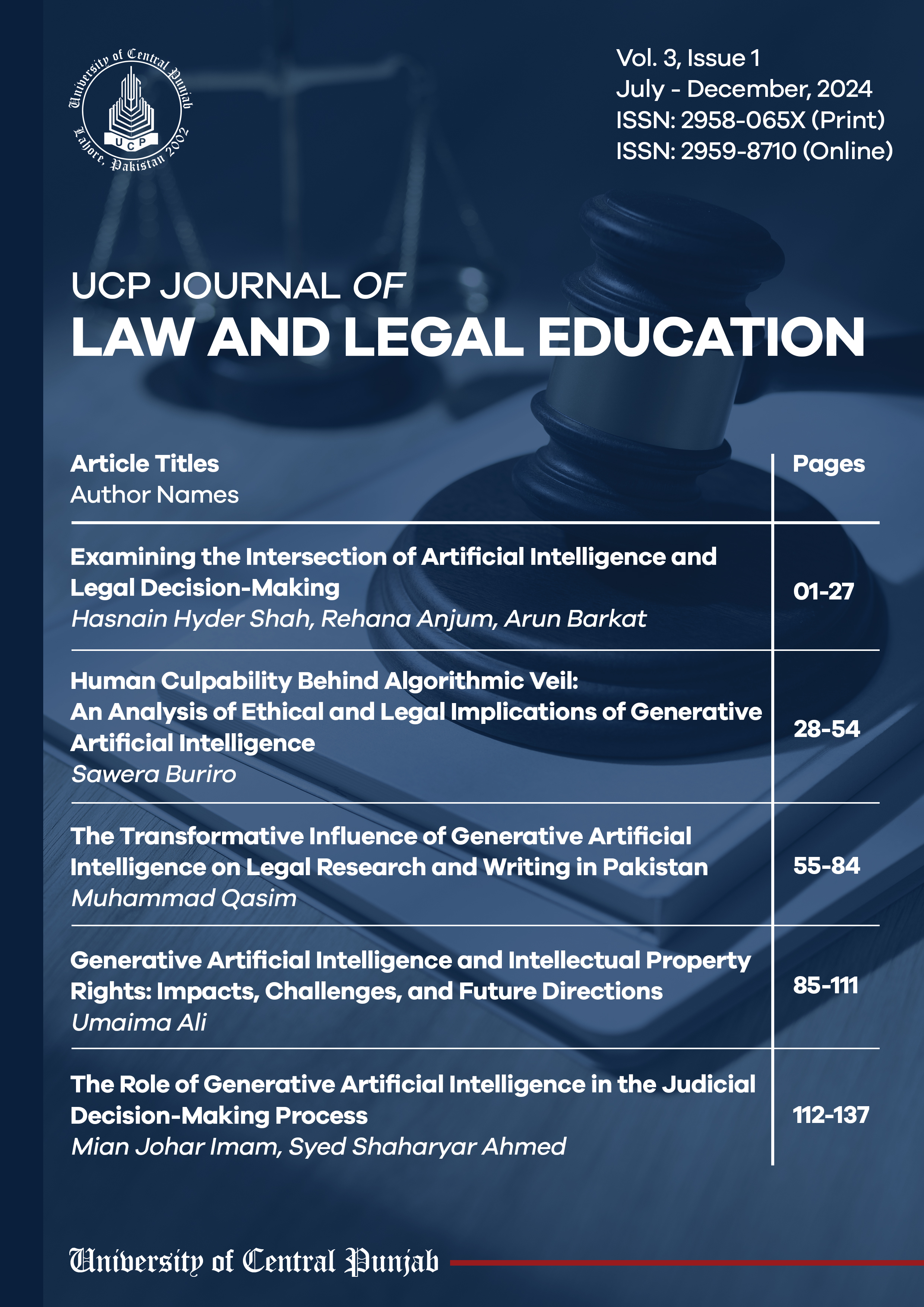The Role of Generative Artificial Intelligence in Judicial Decision-Making Process
DOI:
https://doi.org/10.24312/ucp-jlle.03.01.305Keywords:
Generative AI, Judicial Decision-Making, Potential, Prospects and RoleAbstract
Artificial Intelligence (AI) has permeated all sectors of society, and the legal profession is no exception to such a development. As an expanding innovation in modern technology AI holds promise for improving efficiency and consistency in all spheres of human life. This paper explores the integration of generative AI, specifically ChatGPT, into judicial decision-making, highlighting both its transformative potential and inherent challenges. While ChatGPT’s impartiality, rationality, and capacity to process vast legal data offer promising solutions to judicial inefficiencies, its limitations in contextual reasoning and purposive interpretation raise concerns. Ethical considerations, such as bias amplification, lack of accountability, and opacity in decision-making, further complicate its application. By examining these aspects, this study advocates for a hybrid judicial model, where generative AI serves as an assistive tool under human oversight, ensuring fairness and transparency. This balanced approach could redefine efficiency and equity in justice delivery while safeguarding against the risks of over-reliance on technology.
Downloads
Published
Issue
Section
License
Copyright (c) 2025 UCP Journal of Law & Legal Education

This work is licensed under a Creative Commons Attribution-NonCommercial 4.0 International License.




